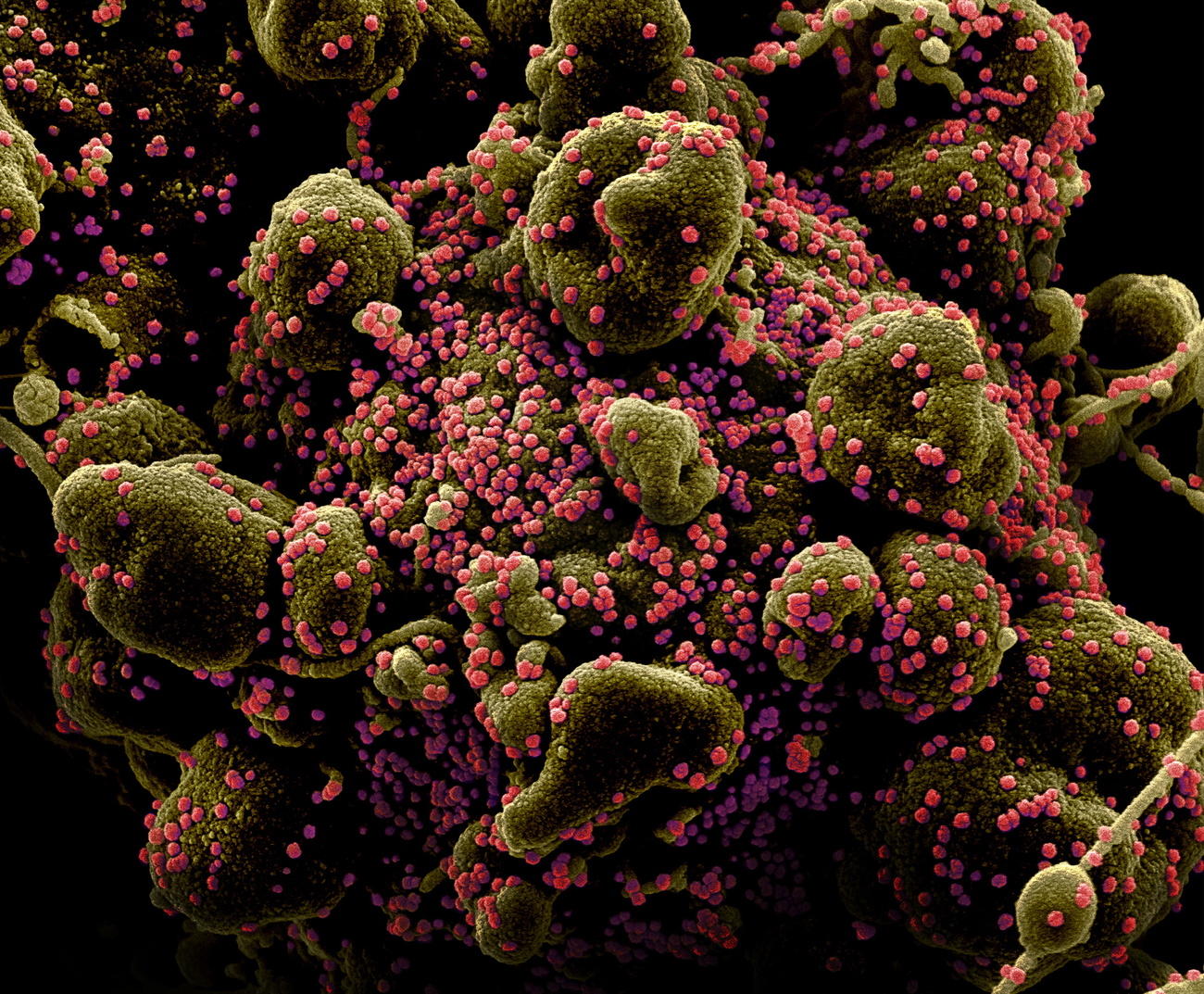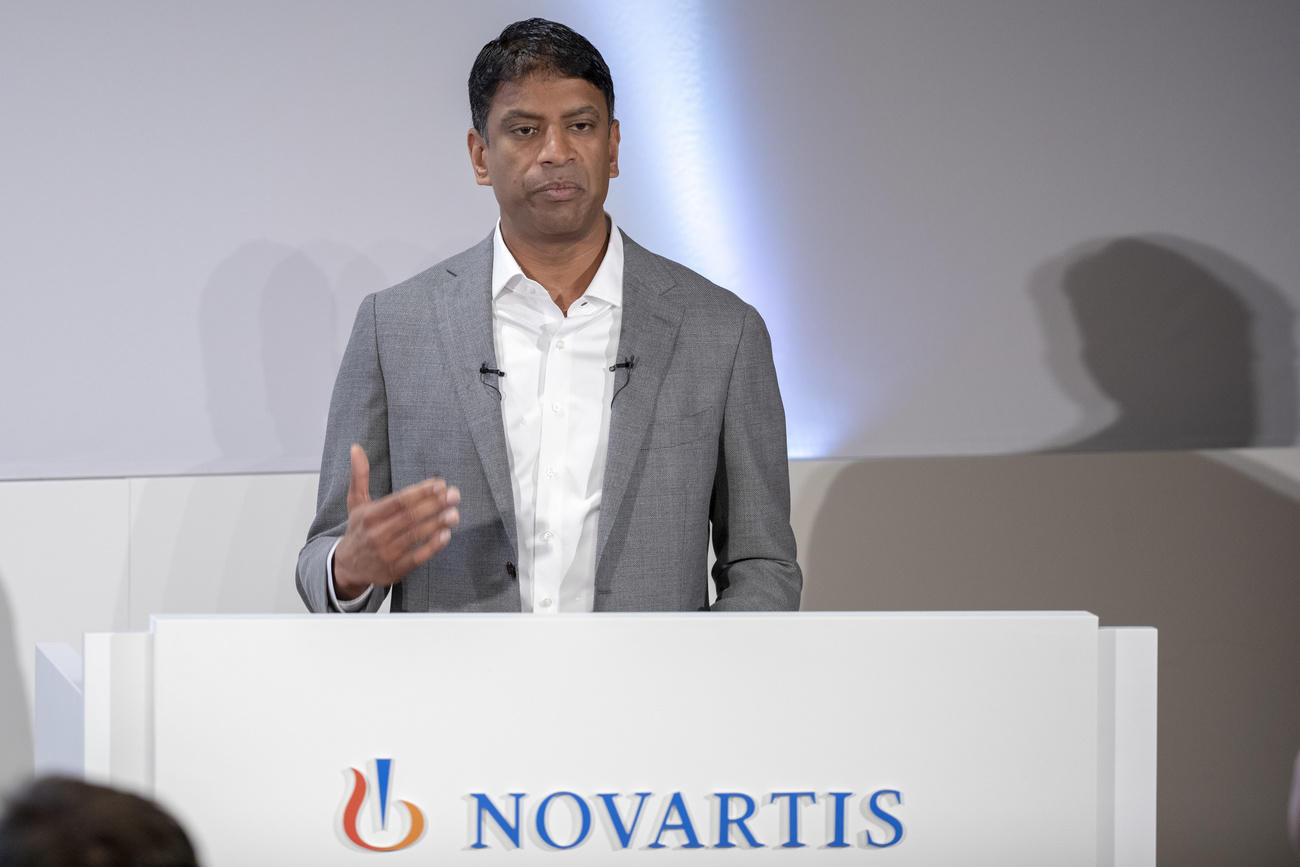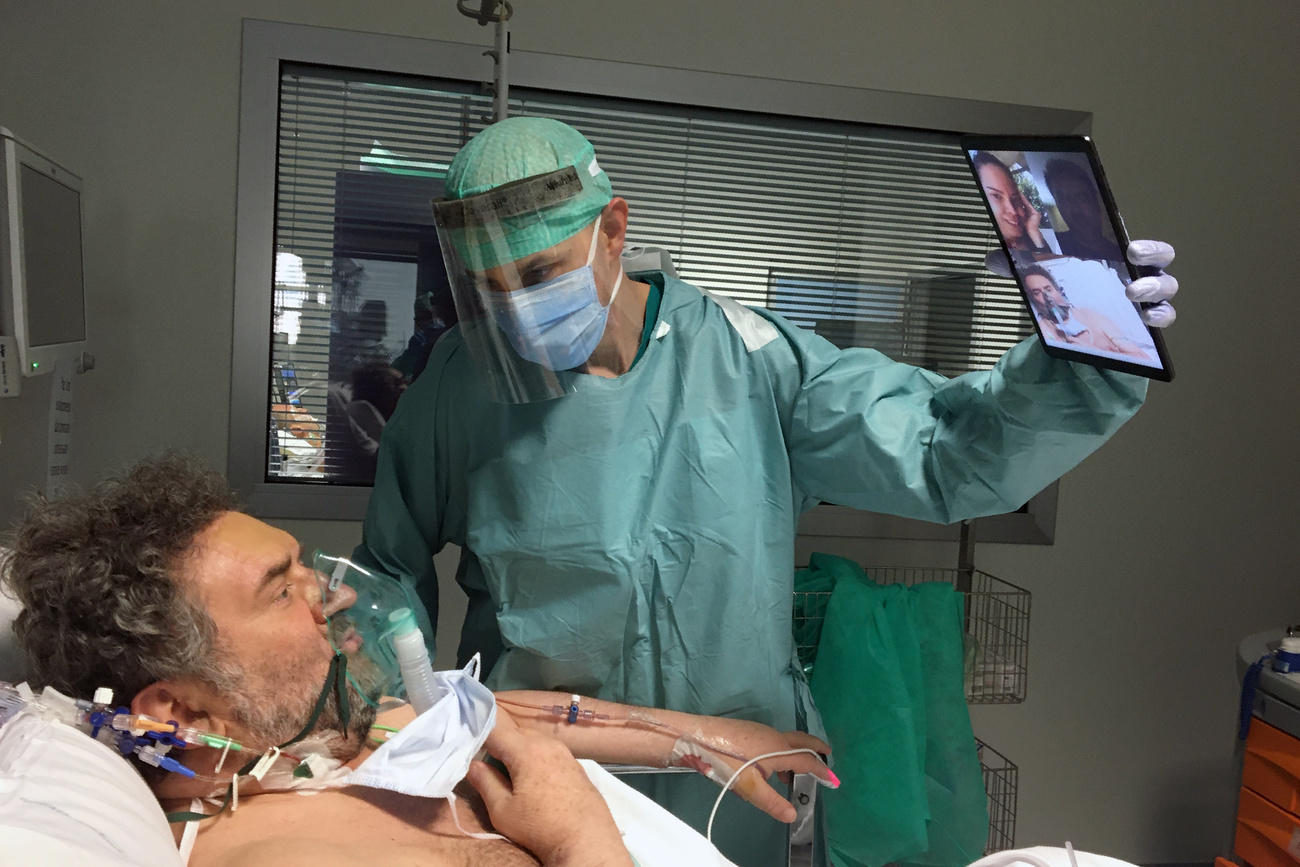What Swiss researchers are doing to beat Covid-19

While Switzerland continues to be a hotspot for coronavirus cases, Swiss scientists and drug companies are playing an important role in the global effort to develop treatments or a vaccine for the virus.
“The scientific community has responded much more effectively to the Covid-19 outbreak than to the SARS outbreak,” Francesco Stellacci, professor at Lausanne’s Federal Institute of Technology (EPFL) said.
Stellacci has been working on developing a broad-spectrum anti-viral drug for the past 10 years. In an interview published by EPFLExternal link, he said data had been shared very quickly and everyone has helped each other out.
“The scientific community truly grasped the importance of expanding the scope of research and sharing everything openly.”
The collaboration appears to be bearing fruit. Only three months have gone by since Chinese health officials first informed the World Health Organization about a cluster of 41 patients with a mysterious pneumonia in Wuhan on December 31. Despite the short time frame, there is a lot of progress to report on the research side.
Progress and call for proposals
The Department of Immunology at the University Hospital in Bern has been working on a vaccine since January. Initial sequences of the virus were quickly isolated. The vaccine has already been tested on animals.
Meanwhile, Peter Burkhard, an immunologist with a private laboratory in canton Basel City, has also developed a precursor of the Covid-19 vaccine, which has been tested on animals and he is now testing on himself. See the full report in this swissinfo.ch video .

More
Swiss scientists in a race to develop coronavirus vaccine
There will soon be more research in the pipeline after the Swiss National Science Foundation (SNSF) put out an emergency call for proposals on research into coronaviruses on February 25 “to tackle the current crisis and prepare for future likely epidemics”. A sum of CHF5 million ($5.2 million) has been earmarked for projects.
The first call of its kind ever organised by the SNSF received 220 applications. The majority of projects were biomedical, including studies of viruses and infections, the immune response in humans and the spread of the disease.
The selected projects “will provide a basis for the subsequent industrial development of active agents”. The grants available are between CHF50,000 and CHF300,000 per project.
Anti-viral route
The best defence against this virus is a vaccine, but since it is likely to take at least 18 months to develop one, a broad-spectrum anti-viral drug could buy us some time, according to Franceso Stellaccio.
While a miracle cure is still the dream of all those working hard in the lab, Stellaccio explains that a less effective drug would also be beneficial to society.
“Current data show that every person who catches the virus infects 2.6 other people on average. So a drug with an efficacy of 50% would reduce this figure to 1.3, and that would slow the virus’s spread considerably.”
Drug repurposing
It is often the case that a drug developed for one condition can turn out to be useful for other indications. In a promising development, Relief Therapeutics, headquartered in Zurich, is making progress with its erectile dysfunction drug Aviptadil, which has been found to be helpful in treating patients with Acute Respiratory Distress Sydrome (ARDS).
With the coronavirus, death is primarily caused by ARDS, in which severe inflammation causes the lungs to fill with fluid. Aviptadil is a patented formulation of Vasoactive Intestinal Polypeptide (VIP), a naturally occurring peptide hormone that is concentrated in the lungs.
Relief Therapeutics announced on March 26External link that it has filed an investigational new drug application with the US Food and Drug Administration (FDA), in collaboration with an American drug development company, NeuroRx. The application is for a phase two trial of Aviptadil in the treatment of acute and moderate respiratory distress in patients infected by the coronavirus.
Also in the last week, Swiss pharmaceutical giant Roche announced it was launching a clinical trial of a potential new Covid-19 drug, another case of repurposing. Roche is working with the FDA and the US government to initiate a phase three trial to evaluate the safety of Actemra, a drug used to treat two inflammatory diseases. The drug is known as RoActemra outside the US. As reported on March 20, the study will enrol about 330 patients globally starting next month, including in the US. Actemra works by inhibiting the body’s immune response.
Detecting immunity
Meanwhile, a number of Swiss university hospitals – in Zurich, Lausanne, Geneva and St Gallen – are preparing to carry out serological tests to detect the presence of Covid-19 antibodies in the blood.
The aim is to estimate the proportion of the population that is already immune to the disease. The higher the proportion, the better the protection against a second wave of infections.
“Today we know that we have a certain number of infected people but we don’t have the exact denominator, because only symptomatic people are being tested. It would be useful to have those numbers to better manage the crisis as a whole,” Gilbert Greub, senior physician at the Institute of Microbiology in Lausanne University Hospital told Swiss public television RTS.
Although many different avenues are being pursued simultaneously, there will be no quick fix to the immediate problem through a drug or vaccine. Professor Stellacci stressed the importance of managing the expectations of the public in this stressful time.
“We have to be clearer about what we’re doing, the challenges we face and the time it will take. Otherwise we may be selling false hope.”

More
Coronavirus: the situation in Switzerland

In compliance with the JTI standards
More: SWI swissinfo.ch certified by the Journalism Trust Initiative











You can find an overview of ongoing debates with our journalists here . Please join us!
If you want to start a conversation about a topic raised in this article or want to report factual errors, email us at english@swissinfo.ch.